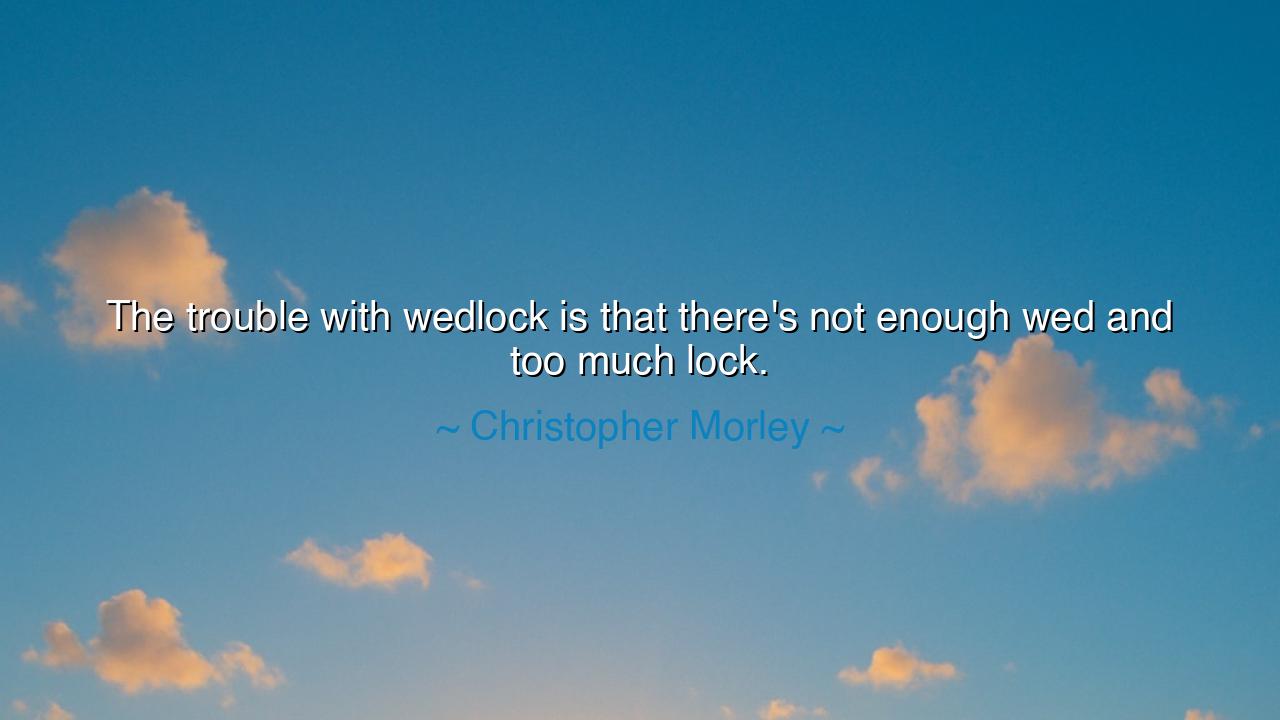
The trouble with wedlock is that there's not enough wed and too






The words of Christopher Morley—“The trouble with wedlock is that there's not enough wed and too much lock.”—are a sharp yet tender critique of how marriage can drift from union into confinement. In these words, wed symbolizes the joy of union, the blending of two souls in love and partnership. Lock, however, represents the chains of obligation, the rigid expectations, and the suffocating weight of duty that too often overshadow affection. Morley reminds us that the danger of marriage is not in its intent, but in its failure to preserve love while enforcing law.
This utterance unveils the paradox of wedlock. What begins as a free and joyous choice can become, if neglected, a cage. Couples enter matrimony with hearts aflame, yet over time, the warmth of wed may fade, leaving only the iron of lock. Morley’s wisdom is a call to vigilance: that marriage must be constantly renewed by love, lest it descend into mere endurance.
History gives us the tale of Queen Victoria and Prince Albert. Though their marriage was one of deep love, after Albert’s death, Victoria’s long mourning turned the symbol of their union into a heavy chain, both for herself and for her nation. What had once been joyous wed became unyielding lock, binding her life in sorrow. Their story reminds us that the strength of marriage is fragile, and when affection or joy is lost, what remains can feel like imprisonment.
The quote also speaks to the need for balance. Marriage is both freedom and restraint: freedom in the choice to love, restraint in the promises made. But when restraint overwhelms freedom, when obligation outweighs tenderness, the sacred bond becomes distorted. Morley’s jest is therefore a truth: that to preserve the spirit of marriage, one must keep alive the play, the passion, the continual act of “wedding,” of choosing each other anew each day.
Let this wisdom be passed to the generations: nurture the wed more than the lock. Do not let marriage become a prison of habit or obligation alone. Keep love alive with laughter, tenderness, and shared dreams, so that the bond remains a union rather than a shackle. As Christopher Morley teaches with wit and depth, the true danger of marriage lies not in its vows, but in forgetting that its essence is love, not chains.






AAdministratorAdministrator
Welcome, honored guests. Please leave a comment, we will respond soon